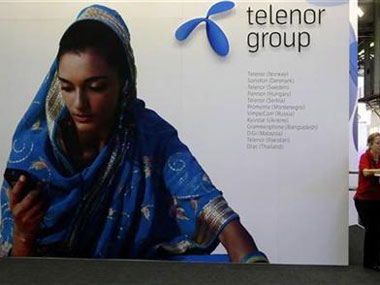It didn’t need a Norwegian Trade and Industry Minister to warn us that if we fail to clear up the telecom mess, foreign investment will shy away.
However, the minister, Trond Giske, managed to make threatening noises the other day which call for a riposte. In hinting darkly at “political implications,” Giske surely went overboard and needs to be told a few hometruths.
Let’s see what he said and why it is a case of too much “injured” innocence at work.
[caption id=“attachment_308396” align=“alignleft” width=“380” caption=“When you are going to pay top dollar for just a stake in a business that had no assets to its name beyond a licence, you should know what you are paying for. Reuters”]  [/caption]
Several press reports quoted Giske as saying that the interests of Telenor, the Norwegian public sector company that invested 67.5 percent in Uninor, had been “innocently harmed.”
Surely, Giske is being disingenuous here. Stories on how licences were distributed by Andimuthu Raja were being publicly discussed in 2007-08, well before Telenor bought a stake in Unitech Wireless. So the Norwegian company had either done no due diligence at all on the Indian investment, or preferred not to look underneath.
When you are going to pay top dollar for just a stake in a business that had no assets to its name beyond a licence, you should know what you are paying for. When Telenor invested in Uninor, it had no business, and almost no assets beyond a licence with “free” spectrum attached.
Impact Shorts
More ShortsMoreover, Telenor did not even ask itself a basic question: what am I doing in bed with a real estate company? In India, real estate companies do not have the best of reputations, so Telenor should have done a double-check on what it was getting into.
Giske said: “Telenor is not just any company. 54 per cent of the shares are owned by the Norwegian people through the state and, thus, it has even further political implications that such a company will be harmed. If this investment fails, it will be probably the biggest loss a Norwegian company has in foreign investments ever.”
Well, well. If this is how public sector funds are invested by Norway, we shouldn’t be berating ourselves on how poorly we spend our people’s money. One believed that levels of governance are higher in Scandinavia than in India.
While it is no one’s case that Telenor should be forced into a loss, the minister should know that there are “political implications” on both sides.
In any case, Telenor is now acknowledging that it made a wrong choice of partner, and has been trying to dump Unitech as soon as it can. What Giske can legitimately demand is that Telenor should be given a fair chance to rebuild its business once transparent policies are put in place.
The other point is this: Telenor’s losses are not all related to the cancellation of licences in the 2 February verdict of the Supreme Court. In ramping up its business, Uninor has been busy undercutting rates and its operating losses have been rising for a while due to this. So the company was losing money long before its licences were cancelled.
The court verdict, if followed by sensible policies, will clear the field of non-serious telecom players and long-term players like Telenor can then build a business.
So when Giske says that the “situation after the Supreme Court ruling, with the withdrawal of licences, and proposals from Trai for new auction, have created obstacles to our future engagement”, we can cluck sympathetically at his predicament, but then that’s how the law operates anywhere.
Perhaps the best statement the minister made was this: “I think it is truly possible to strike a balance and find common ground where both Supreme Court decisions are fully respected, revenues to the Indian government are secure and competition and good service are provided to customers through participation of Telenor.”
That’s what is likely to happen once government and Trai sort out their spectrum pricing issues. It is a pity that laws were subverted in awarding licences to new telecom players in 2008. Telenor jumped in when it was clear even in 2008 that there was going to be some fuss over how Raja managed the allocations.
If you opt to enter even when the situation was less than squeaky clean, you pay the price.
This should not let our own government off the hook. We messed up big. But Telenor’s threats also need to be taken with a pinch of salt.


)

)
)
)
)
)
)
)
)



